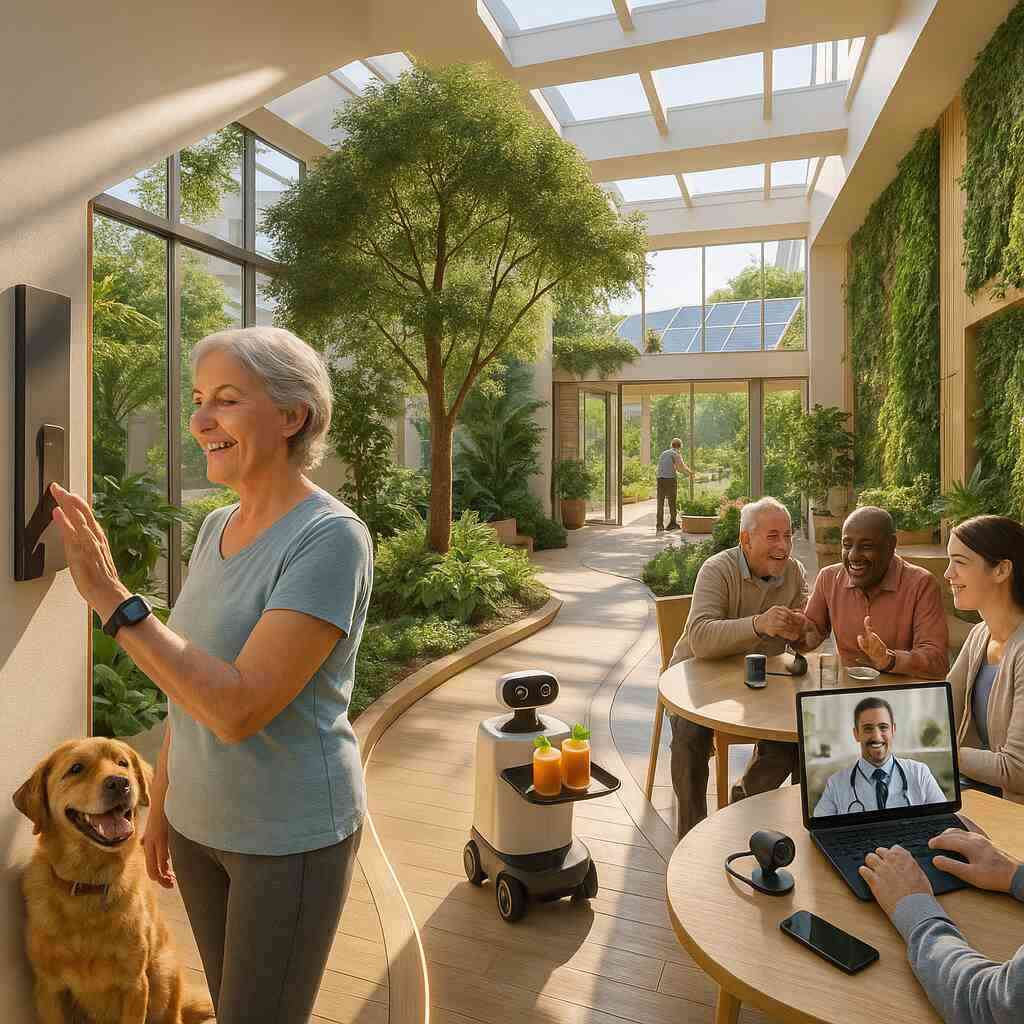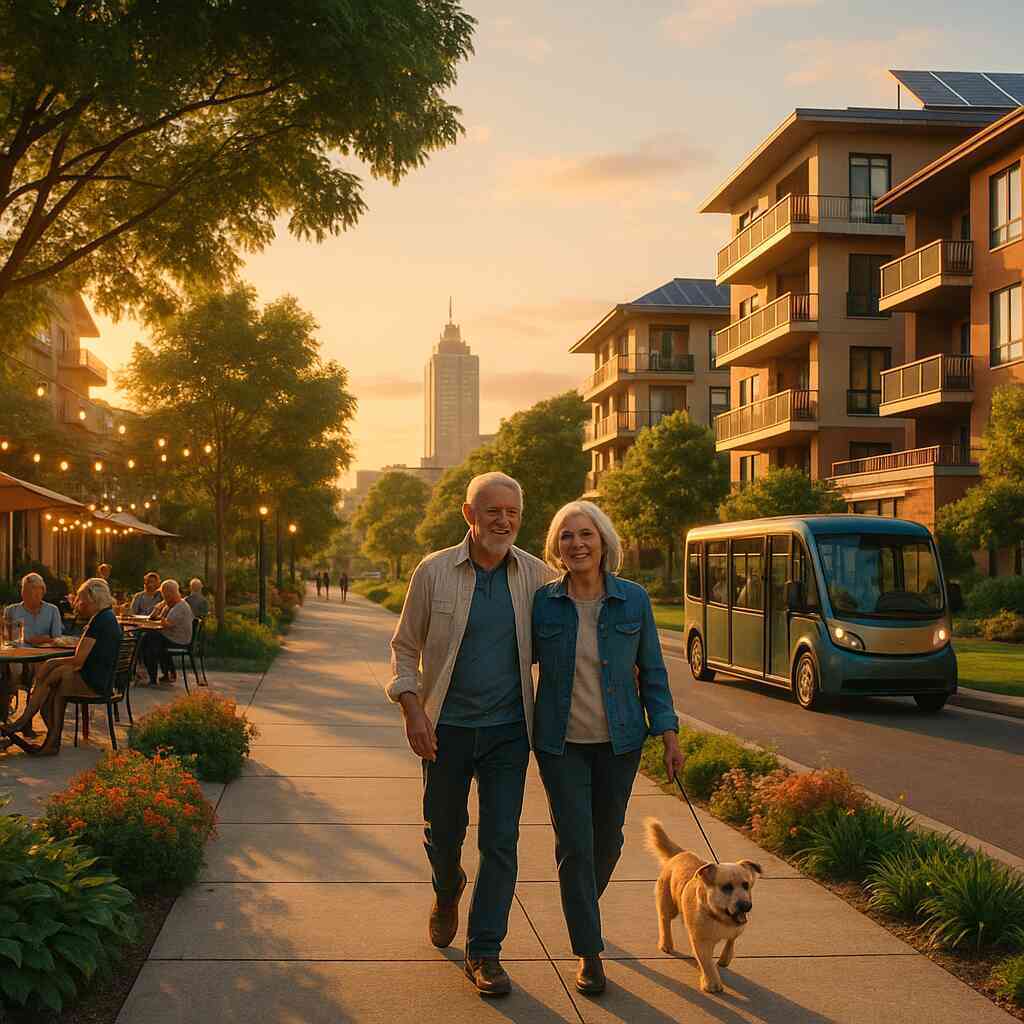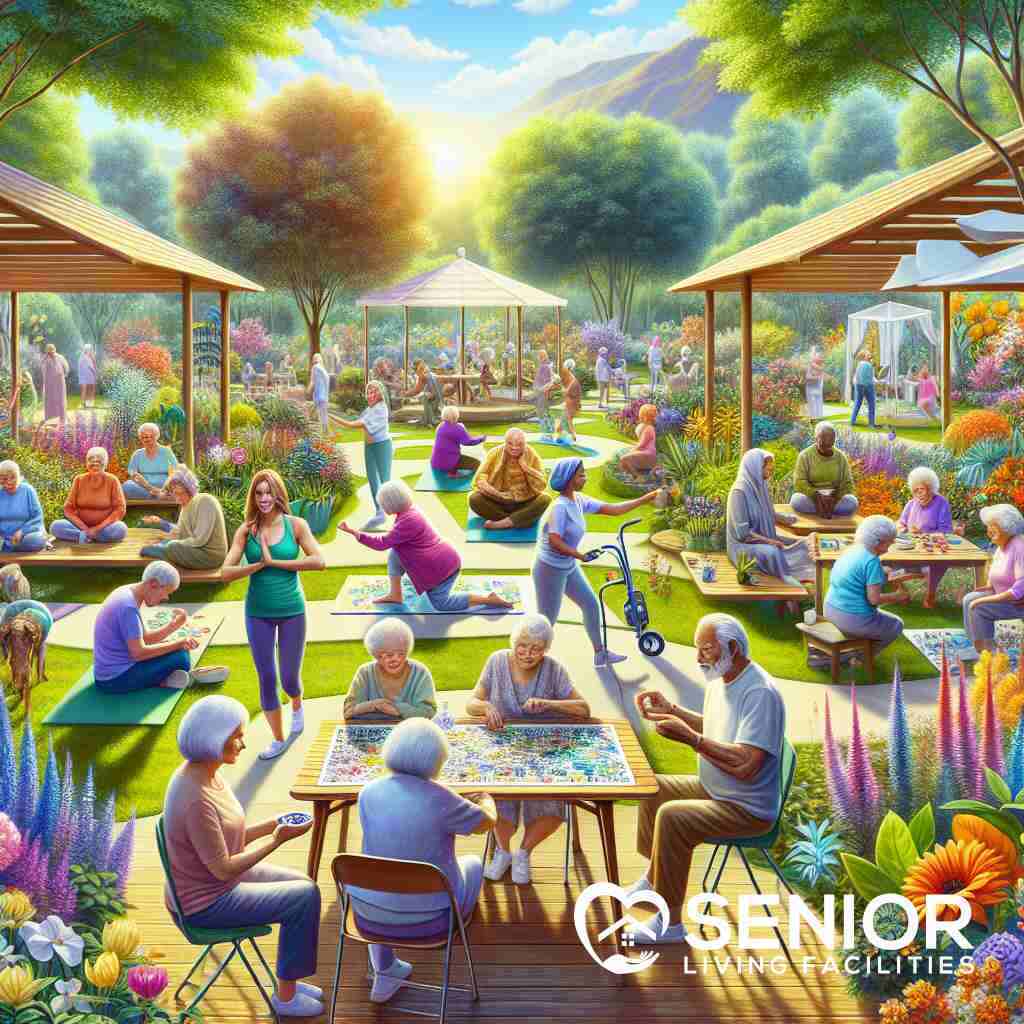
The Essential Guide to Cognitive Health in Senior Communities
July 23, 2025
Embarking on the Journey to Cognitive Vitality in Senior Living
Unraveling the Complex Tapestry of Cognitive Health for Seniors
Understanding cognitive health in senior communities is akin to decoding a complex tapestry, rich with interwoven threads of mental function and emotional well-being. As seniors age, the landscape of their cognitive abilities may shift, presenting unique challenges that require thoughtful navigation. Cognitive health encompasses an array of components including memory, attention, and executive function. Understanding these facets allows us to appreciate the breadth and nuance of cognitive vitality. It is paramount to consider how societal factors, such as support systems and community engagement, underlie successful cognitive aging. Acknowledging these components paves the way for enhancing senior cognitive wellness insights, reinforcing their continued mental acuity.
Introduction to Senior Living Facilities Commitment to Cognitive Wellness
At Senior Living Facilities, our unwavering commitment to cognitive wellness reflects in our robust network of senior living options across all U.S. states. We believe in fostering an environment where aging adults can thrive mentally while enjoying a rich, fulfilling lifestyle. Our platform not only connects families to a curated list of communities tailored to individual needs but also emphasizes the importance of brain fitness programs for aging adults. We proactively integrate cognitive health into every facet of our communities, recognizing its critical role in overall senior well-being. This holistic approach ensures that residents can maintain their cognitive function while participating in engaging activities that stimulate their minds and bodies alike.
Navigating the Landscape of Cognitive Health in Aging
As we delve deeper into the landscape of cognitive health in aging, it becomes evident that the journey is both multifaceted and dynamic. Senior communities play an instrumental role in driving mental agility in senior living through thoughtfully designed programs and supportive environments. Our mission is to adeptly guide seniors and their families through this intricate landscape, offering them the support and resources they need. Through engaging cognitive health resources, we are dedicated to promoting mental agility and enhancing cognitive resilience among aging adults. As we navigate this terrain, our focus remains on empowering seniors to live not just longer, but better, harnessing the potential of cognitive engagement to enrich their golden years.
Foundations of Cognitive Health in the Elderly: Key Components
Understanding Aging and the Brain: A Neuroscience Perspective
As individuals transition into their golden years, the brain undergoes natural transformations, influencing various cognitive functions. Neuroscience sheds light on how aging impacts neural pathways, introducing concepts like neuroplasticity for the elderly-the brain’s remarkable ability to reorganize itself by forming new neural connections. This inherent adaptability is crucial for maintaining cognitive health. Understanding these changes is essential for developing interventions that bolster cognitive resilience. As life expectancy increases, demystifying how the aging brain functions becomes imperative for promoting sustained mental agility and preventing cognitive decline. By fostering a simplified comprehension of these processes, senior communities can tailor their initiatives towards enhancing senior cognition, thus nurturing brains that thrive even in later stages of life.
The Role of Senior Communities in Cognitive Health Enhancement
Senior communities are pivotal in fostering environments that encourage cognitive health enhancement. They provide a thriving ecosystem where cognitive stimulation in elder care is prioritized, offering tailored programs that address the unique needs of residents. These communities serve as a nexus for holistic cognitive care by integrating cognitive health resources for the elderly, ensuring activities are both enriching and engaging. By promoting continuous learning and interaction, senior living facilities empower residents to remain mentally active, thereby mitigating the risk of cognitive decline. Furthermore, they play a vital role in cultivating a sense of belonging, which positively influences mental well-being. Through structured activities and community events, these facilities offer pathways for social and cognitive engagement, ultimately reinforcing cognitive vitality.
Integrating Physical, Emotional, and Social Elements for Cognitive Holism
Achieving cognitive holism in senior communities necessitates an integrated approach that encompasses physical, emotional, and social well-being. This holistic approach highlights the Definition of Optimal Wellness in Senior Living Today as essential for enhancing overall health and wellness. Engaging in physical activities contributes to the enhancement of cognitive function, as it promotes blood circulation and neurogenesis. Emotional well-being is equally critical, as it affects brain chemistry and cognitive performance. Implementing holistic cognitive therapies ensures a balanced approach, incorporating mindfulness practices, relaxation techniques, and stress management strategies. Social engagement acts as a catalyst for cognitive vitality, reinforcing mental acuity through interaction and community participation. By harmonizing these elements, senior living facilities can nurture an environment where residents experience a symbiotic relationship between body, mind, and community, fostering continued cognitive vitality and a fulfilling lifestyle.
Cutting-Edge Cognitive Wellness Programs in Senior Living Communities
Exploring Brain Fitness for Seniors: Programs and Exercises
In the world of brain fitness programs for aging adults, senior living communities are pioneering dynamic solutions to enhance cognitive health. These programs focus on stimulating various mental functions through activities designed to engage the brain actively. From memory games and puzzles to technology-assisted learning modules, these initiatives foster mental flexibility and resilience. Regular participation in such exercises not only sharpens memory but also aids in developing problem-solving skills, thereby improving overall mental acuity in elderly residents. By dedicating time to brain fitness, seniors can experience better cognitive health and, consequently, a richer quality of life. These brain-centric activities offer residents opportunities to remain intellectually active, which is crucial for sustained cognitive viability.
Memory Care Communities: A Sanctuary for Cognitive Support
Memory care communities emerge as sanctuaries providing solace and structured support for individuals experiencing cognitive decline. These specialized environments are designed to cater to those battling memory impairments by emphasizing tailored memory support communities that mitigate and slow the progression of memory-related challenges. With a focus on creating a nurturing setting, they implement individualized care plans that consider the unique needs of each resident. These communities strive to create safe, engaging environments that alleviate stress and encourage participation in activities across cognitive and creative spectrums. By providing a haven where stability meets stimulation, memory care communities enhance senior cognition, offering both reassurance and empowerment to residents and their families.
Cognitive Stimulation Therapy: Enhancing Neuroplasticity in Aging
Cognitive Stimulation Therapy (CST) is at the forefront of enhancing neuroplasticity for the elderly, providing a structured, evidence-based approach to improving cognitive function in seniors. CST sessions typically include enjoyable and purposeful activities that stimulate thinking, concentration, and communication, crucial for boosting brain plasticity. By emphasizing theme-based group activities, CST fosters social interaction and cognitive engagement, which are essential factors in building sustainable mental health. This innovative therapy underscores the concept of adaptable aging brains-leveraging the potential of neuroplasticity, seniors can better navigate the cognitive challenges aging brings. Furthermore, integrating CST in senior living facilities demonstrates an impactful commitment to cognitive health excellence, reinforcing the capacities for both mental agility and social cohesion among elderly residents.
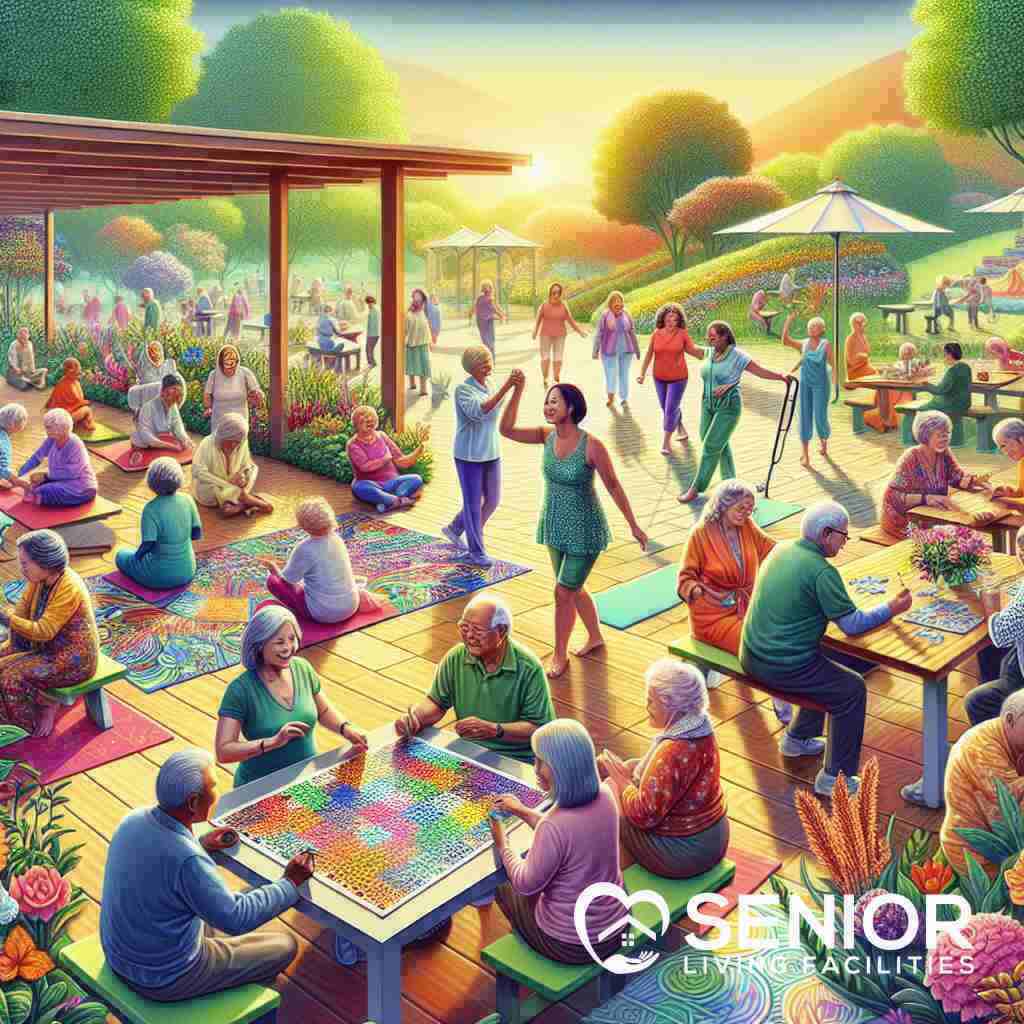
Empowering Seniors Through Cognitive Health Engagement
Creating Dementia-Friendly Communities: Pathways to Inclusivity
Dementia-friendly communities are becoming crucial in enhancing the quality of life for seniors, emphasizing inclusivity and comprehensive support. These communities are designed with dementia-friendly community designs that cater to the unique needs of individuals experiencing cognitive challenges, ensuring both safety and engagement. By incorporating strategically planned layouts and accessible resources, these environments facilitate ease of navigation for residents, thus minimizing stress and confusion. Furthermore, staff training programs are essential to provide empathetic care tailored to dementia-related needs, reinforcing a supportive atmosphere. These communities foster an environment where seniors maintain a sense of dignity and independence, exemplifying a commitment to inclusivity in senior living facilities.
Innovative solutions in designing dementia-friendly environments often include sensory gardens, memory cafes, and therapeutic art spaces. These components encourage social interaction and cognitive stimulation, vital in preventing the isolating effects of dementia. By integrating technology and adaptable living spaces, these communities enable seniors to participate actively, promoting their mental well-being. This holistic approach is key in empowering seniors through cognitive engagement, fostering a vibrant and inclusive community.
Senior Brain Health Programs: Innovative Approaches to Mental Agility
Senior brain health programs form the cornerstone of fostering mental acuity in aging adults, offering structured interventions to enhance cognitive resilience. These programs incorporate a variety of brain exercises for seniors, designed to stimulate neural pathways and bolster brain health. Among the successful initiatives are those that focus on puzzles, memory games, and brain fitness programs for seniors, which encourage continual learning and adaptability.
Technology plays an increasingly pivotal role in these programs. Virtual reality experiences and online platforms for cognitive training are integrated to provide seniors with engaging, multisensory experiences that promote mental sharpness. By leveraging cutting-edge technology, senior living facilities create immersive environments that captivate and challenge residents, ensuring sustained cognitive engagement.
Moreover, collaboration with cognitive health experts helps in designing personalized interventions that address individual cognitive needs. This proactive strategy in senior brain health programs underscores the importance of maintaining mental agility, allowing seniors to embrace an enduring cognitive vitality.
Promoting Mindfulness: Techniques and Benefits for Seniors
Mindfulness practices are integral to fostering cognitive and emotional well-being among seniors, offering profound benefits in enhancing their quality of life. By engaging in elder mindfulness practices, seniors can develop increased focus, emotional regulation, and stress reduction, all contributing to a healthy aging brain. Mindfulness techniques, such as meditation, deep-breathing exercises, and guided imagery, promote relaxation and cognitive clarity in an empowering way.
Senior living facilities are incorporating these practices into their daily routines, recognizing their therapeutic potential in fostering a calm and focused mind. Structured mindfulness sessions provide seniors with tools to cultivate present-moment awareness and acceptance, crucial in managing the transitions that accompany aging. These programs directly enhance mental agility, supporting seniors as they navigate cognitive and emotional changes.
Furthermore, the holistic integration of mindfulness is evident in activities that combine movement, like yoga or tai chi, with meditation. These blended approaches optimize both physical and mental health, reinforcing the interconnectedness of mind and body in holistic cognitive care. Such practices serve as valuable assets in promoting mental health in senior communities, offering residents pathways to both cognitive empowerment and well-being.
Harnessing Community and Resources for Cognitive Health Advancement
Senior Living Facilities as Catalysts for Cognitive Health Resources
Senior living facilities play a pivotal role in serving as catalysts for cognitive health resources, significantly improving the quality of life for seniors. By leveraging their comprehensive networks and expertise, these communities facilitate access to innovative programs and services specifically designed for cognitive health. These facilities offer an array of engaging activities and resources, including personalized brain exercises and educational workshops, tailored to meet the diverse needs of their residents. Through the use of advanced technologies and methodologies, such as virtual reality and computer-assisted training, senior living communities are redefining cognitive wellness, drawing insights from Guide to Using Advanced Technologies in Senior Living. By doing so, they provide seniors with opportunities to engage in continuous learning, mental stimulation, and social interaction, ensuring a vibrant and fulfilling experience.
Collaboration with Cognitive Health Professionals: Building a Network
Building a strong network of cognitive health professionals within senior living communities is essential for promoting optimal cognitive care. Collaborations with neurologists, psychologists, and other health experts enable these communities to offer comprehensive assessments in senior cognitive health, ensuring that each resident receives personalized care tailored to their specific needs. By establishing partnerships with universities and research institutions, senior living facilities can remain at the forefront of cognitive health advancements through evidence-based practices and innovative studies. These collaborations further enhance the quality of programs offered, allowing for the development of targeted interventions that address various cognitive challenges. By fostering a multidisciplinary approach, senior living facilities can create a support system that integrates expertise from various fields, ultimately contributing to the well-being and cognitive vitality of their residents.
Accessing Online Resources and Support for Families and Caregivers
In today’s digital age, accessing online resources and support for families and caregivers has become an invaluable aspect of cognitive health maintenance. Senior living facilities provide an array of online platforms and portals where families and caregivers can find valuable information on cognitive health topics, including brain exercises, dementia care strategies, and tips for enhancing senior cognition. These resources offer convenience and flexibility, allowing caregivers to engage with educational materials and support groups from the comfort of their own homes. Additionally, online platforms pave the way for virtual support meetings and consultations, fostering connections and shared experiences among caregivers. By seamlessly integrating these online resources, senior living facilities empower families and caregivers with the tools and knowledge necessary to provide optimal care and support for their loved one’s cognitive health journey.
For those seeking further guidance, cognitive health workshops near you offer an enriching avenue to explore the latest strategies and insights in senior cognitive wellness, ensuring that all involved remain informed and engaged in the process.
Paving the Way Forward: The Future of Cognitive Health in Senior Communities
Emerging Trends and Innovations in Elderly Cognitive Therapies
The sphere of elderly cognitive therapies is witnessing unprecedented evolution, introducing groundbreaking methodologies tailored to address cognitive decline. Innovative cognitive therapies for seniors are actively transforming traditional approaches, making strides in enhancing mental agility. Therapies now emphasize personalization, identifying individual cognitive needs and crafting interventions unique to each elder’s cognitive profile. Cutting-edge research in neuroscience fuels these advancements, paving the way for therapies that harness the intricacies of brain plasticity. Senior living facilities are at the forefront of implementing these innovative therapies, ensuring their residents benefit from enhanced cognitive health interventions, as discussed in Comparing Senior Facilities: Rural versus Urban Insight. By closely monitoring emerging trends, these communities position themselves as leaders in providing state-of-the-art cognitive care, fostering an environment where senior cognitive vitality is continually rejuvenated.
Redefining Senior Living Environments for Cognitive Enhancement
The contemporary landscape of senior living environments is undergoing a transformation, specifically aimed at fostering cognitive enhancement. Senior living facilities are integrating elements that promote a mentally stimulating atmosphere, reinforcing cognitive vitality as a central element of elder care. This shift involves redesigning physical spaces to encourage cognitive engagement, such as creating areas for communal interaction and cognitive-focused activities. Facilities are also focusing on sensory experiences, recognizing their profound impact on cognitive functioning and emotional well-being. By adopting these innovative practices, senior living environments are evolving into dynamic spaces dedicated to optimizing cognitive health in residents. Such redefinition not only improves the quality of life but also emphasizes a holistic approach to aging, where cognitive well-being is intrinsically linked to physical and emotional health.
The Impact of Technological Advances on Cognitive Care in Seniors
Technological advances are significantly influencing cognitive care for seniors, shaping an era where digital tools and platforms are integral to elder wellness. Technologies such as virtual reality and cognitive training software are being leveraged to enhance senior brain health, offering immersive and engaging experiences that stimulate brain activity. These tools are not just enhancing senior cognition but are also opening new avenues for social interaction and learning, crucial for preventing cognitive decline. Senior communities are integrating these technologies, enhancing their capacity to deliver personalized and effective cognitive care solutions. By continuously adopting and adapting to technological innovations, these communities affirm their commitment to leading the charge in providing comprehensive cognitive resources for elderly care. The fusion of technology with traditional care practices marks a significant advancement, setting a new benchmark for the future of cognitive health in senior communities.
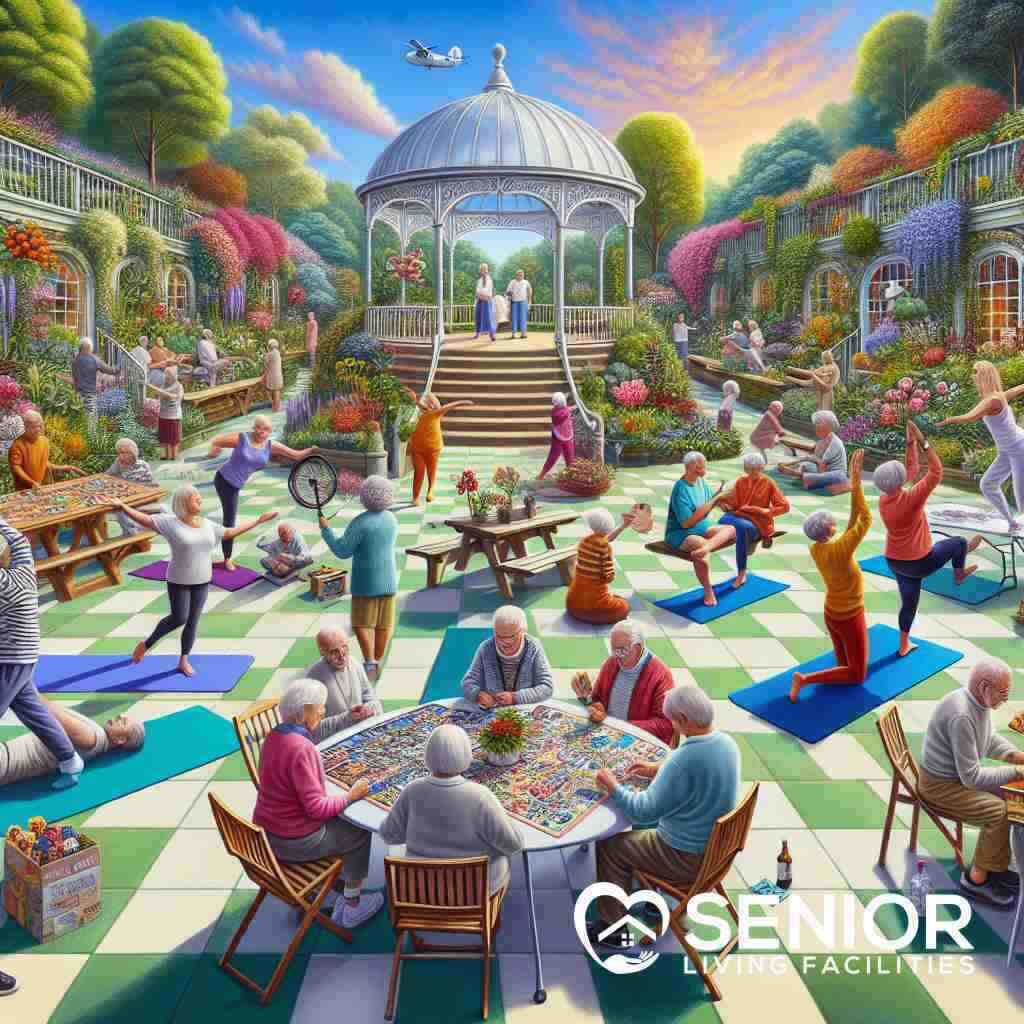
Sustaining Cognitive Vitality: The Journey Ahead for Senior Communities
Continuous Improvement: Adapting Programs for Ongoing Cognitive Health
To ensure ongoing cognitive health, senior communities must embrace a mindset of continuous improvement. This involves regularly assessing and refining cognitive wellness programs to meet the evolving needs of older adults. By incorporating innovative cognitive therapies for seniors, facilities can provide personalized and evidence-based interventions that enhance cognitive health. These adaptations should focus on integrating cutting-edge research, promoting mental agility through engaging activities, and fostering an environment where seniors can thrive intellectually. By staying informed about advancements in neuroscience and cognitive care, senior communities can offer programs that are not only effective but also inspire a lifetime of cognitive vitality. Through this commitment to continuous improvement, facilities reinforce their role as leaders in enhancing senior cognition.
Empowering Seniors and Families: Tools for Navigating Cognitive Health
Empowering seniors and their families is essential in navigating the complex landscape of cognitive health. Providing access to comprehensive resources and support enables families to make informed decisions regarding their loved one’s care. Senior living facilities should offer tools and information about cognitive health, including educational workshops, online resources, and personalized assessments in senior cognitive health, as highlighted in Understanding Health & Wellness in Delaware Senior Living. These tools equip families with the knowledge they need to understand cognitive changes and seek appropriate interventions. By fostering open communication and collaborative approaches, communities create a supportive network that addresses the unique needs of each resident. The emphasis should always be on enhancing senior brain health through programs that not only enrich residents’ lives but also promote peace of mind for their families, ensuring a seamless and informed cognitive health journey.
Conclusion: Embracing a Holistic Future in Cognitive Wellness
The future of cognitive wellness in senior communities is undoubtedly holistic, integrating physical, emotional, and social elements to nurture cognitive vitality. By embracing comprehensive care models, facilities can ensure that all aspects of a resident’s well-being are addressed, leading to mentally healthy aging for seniors. This holistic approach not only includes personalized brain exercises and cognitive therapies but also emphasizes community building and social engagement. As we move forward, senior living facilities must remain adaptive to technological innovations and emerging trends in cognitive care, ensuring residents receive the best support available. By committing to a holistic future, these communities reinforce their dedication to fostering an environment where cognitive wellness is prioritized, securing a thriving and enriching experience for every senior.
Frequently Asked Questions
Question: How do Senior Living Facilities enhance cognitive health for seniors in their communities?
Answer: Senior Living Facilities are dedicated to enhancing cognitive health for seniors by offering a comprehensive approach that integrates physical, emotional, and social elements. Our communities provide an array of engaging activities tailored to promote mental acuity in the elderly, including brain fitness programs and cognitive stimulation therapy sessions. By fostering continuous learning and interaction, we ensure that residents have access to cognitive health resources that keep them mentally active and socially connected. Our commitment to holistic cognitive care guarantees that seniors enjoy a vibrant and fulfilling lifestyle.
Question: What role do memory care communities play in The Essential Guide to Cognitive Health in Senior Communities?
Answer: Memory care communities play a pivotal role in The Essential Guide to Cognitive Health in Senior Communities by providing specialized environments designed to support individuals with cognitive decline. These communities focus on tailored memory care plans that aim to slow the progression of memory-related challenges while offering a nurturing and engaging environment. At Senior Living Facilities, these communities are equipped with personalized care strategies and therapeutic activities to enhance senior cognition and mental well-being. By prioritizing a sanctuary-like atmosphere, we ensure that residents and their families receive unparalleled cognitive support and peace of mind.
Question: How do Senior Living Facilities incorporate dementia-friendly community designs?
Answer: At Senior Living Facilities, we prioritize creating dementia-friendly communities that emphasize safety and engagement. These communities are thoughtfully designed with accessible resources, sensory gardens, and strategically planned layouts to minimize stress and confusion for residents. We also offer staff training programs to ensure empathetic care tailored to dementia-related needs, creating a supportive and inclusive atmosphere. By promoting social interaction and cognitive stimulation through innovative features like memory cafes and therapeutic art spaces, we empower seniors to maintain a sense of dignity and independence in their daily lives.
Question: What initiatives does Senior Living Facilities have for promoting mental agility in seniors?
Answer: Senior Living Facilities are committed to promoting mental agility in seniors through a range of initiatives designed to enhance cognitive resilience. Our senior brain health programs include engaging activities such as puzzles, memory games, and cognitive health workshops for seniors. We also integrate technology with initiatives like virtual reality and online cognitive training platforms to provide immersive experiences that stimulate brain activity. Collaborations with cognitive health professionals further enable us to offer personalized interventions that cater to individual cognitive needs, ensuring that residents are supported in maintaining mental sharpness throughout their aging journey.
Question: How do Senior Living Facilities ensure holistic cognitive care for seniors?
Answer: Ensuring holistic cognitive care for seniors is central to our mission at Senior Living Facilities. By integrating physical, emotional, and social elements, we promote comprehensive well-being among our residents. Our programs incorporate holistic cognitive therapies such as mindfulness practices, relaxation techniques, and stress management strategies to support emotional health. We also offer various physical activities to boost cognitive function and use social engagement as a tool to reinforce mental acuity. This integrated approach ensures that residents experience a fulfilling lifestyle, with cognitive vitality supported through community and personalized care.
